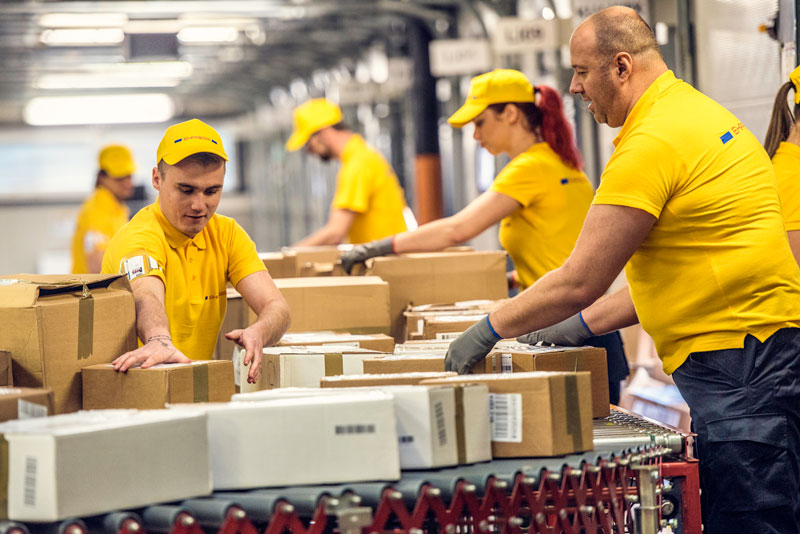Advertisements
Securing your first job in the UK can be challenging, particularly if you lack experience or don’t yet have a work visa. However, opportunities are available for individuals starting their careers or exploring new fields. One such option is the role of a logistics coordinator.
This guide explores logistics coordinator jobs in the UK that offer visa sponsorship for non-UK citizens and do not require prior experience. It covers the typical responsibilities of the role, essential and desirable skills, tips for finding job openings, and answers to frequently asked questions. By the end, you’ll have a clear plan to launch your career in this field.
What Does a Logistics Coordinator Do?
Logistics coordinators play a crucial role in ensuring the smooth flow of goods, materials, and information within a company’s supply chain. Their primary responsibilities include:
- Tracking shipments and monitoring delivery timelines to ensure on-time arrivals. This may involve liaising with carriers, checking shipment status updates, and resolving any issues.
- Organizing transportation and routing of goods between suppliers, warehouses, and end customers. Coordinators schedule pickups, route shipments by the most cost-effective means, and book space on trucks, planes or ships.
- Managing documentation like bills of lading, customs forms, export/import paperwork based on a company’s trade compliance procedures and destination country regulations.
- Maintaining accurate records in logistics software of all shipments, inventory levels, orders etc. and generating reports on productivity, expenses and performance metrics.
- Communicating with internal teams and external partners to answer queries, coordinate transfers between facilities, and resolve delays or damages.
- Identifying opportunities to streamline processes, cut costs, improve customer service and enhance supply chain resilience.
So in essence, a logistics coordinator acts as the link between a company’s different functions and suppliers/customers to make sure materials are moved seamlessly.
Advertisements
Sectors That Offer Logistics Coordinator Roles with Visa Sponsorship
Several industries in the UK have roles suitable for those new to the country or profession. Some of the top sectors to consider include:
Healthcare/Pharmaceuticals
This sector ships temperature-controlled drugs, samples and medical equipment both within the UK and globally. Industry giants like GlaxoSmithKline, AstraZeneca and Roche have entry-level logistics coordinator openings with visa sponsorship.
Consumer Goods/E-commerce
Big retailers and fast-moving consumer goods companies need to source inventory from all over and distribute vast amounts of products daily. Amazon, Unilever and DHL provide opportunities in this space.
Advertisements
Manufacturing/Automotive
Coordinating deliveries of raw materials to factories and moving finished goods from plants requires meticulous planning. Companies involved in automobile, aerospace or industrial manufacturing often hire candidates from abroad.
Technology/IT Hardware
With worldwide research facilities and customer bases, technology MNCs need skilled personnel to handle complex logistics worldwide. Intel, Cisco and Canon may consider candidates without local experience.
Food/Beverage Processing
Timely transportation of ingredients, equipment servicing and exports make logistics critical to this industry. Large food producers and global cafe chains are reputed visa sponsors.
The common thread among these sectors is high trade volumes, international operations and a constant need for team members. Their scale provides diverse entry-level opportunities.
Skills and Qualifications Required
While logistics coordinator roles may not mandate formal logistics education or certificates, certain key skills and qualifications help candidates stand out:
- Proficiency with MS Office (especially Excel): For record-keeping, reporting and general office tasks.
- Attention to detail: To ensure accurate documentation and tracking of multiple shipments simultaneously.
- Organization: To methodically plan movements and prioritize tasks across internal/external teams.
- Communication: Both written and verbal, for interacting tactfully with various stakeholders.
- Problem-solving: To creatively resolve delays, damages or conflicts that affect schedules.
- Languages: Proficiency in English is a must. Additional European languages adds value.
- Customer service: For addressing partner/customer queries courteously and responsibly.
- Adaptability: Willingness to learn variety of roles across the complex supply chain ecosystem.
- Logistics qualifications if any, even introductory: Demonstrates logistics aptitude beyond just hard skills.
While fresh graduates are considered for roles, relevant internships, work and volunteer experience can strengthen applications. Sponsors may take into account educational qualifications from the applicant’s home country too. The combination of soft an hard skills becomes the key differentiator.
Finding Vacancies and Applying Successfully
Now that we understand the job profile and requirements, here are some tips on locating open positions and applying well:
- Browse company career sites of large multinationals directly. Set location to UK to filter open roles.
- Use job boards like Indeed, LinkedIn and Totaljobs to find postings from various employers. Search keywords like “logistics coordinator graduate”.
- Network through alumni networks, industry events and professional organizations like Chartered Institute of Logistics and Transport.
- Consider recruitment agencies that specialize in logistics and supply chain roles. They may have current or upcoming openings.
- While applying online, focus resume on quantifying past logistics experience or transferable skills through achievements and metrics.
- For graduate roles, highlight relevant projects, coursework and any related work/volunteer experience.
- Customize each application letter to tailor your experience to the job and company culture fit.
- Highlight long-term career intentions in the UK to reassure recruiters of visa sponsorship ROI.
- Expect assessments testing attention to detail and organization through tasks like documentation.
- Be well-prepared for interviews regarding logistics scenarios, problem-solving thought process etc.
Following up respectfully after interviews to express your continued interest can help turn opportunities into offers. With persistence and focused efforts, landing a role is definitely achievable.
FAQs about Logistics Coordinator Jobs in the UK
Now that we have covered the key aspects in depth, let’s address some frequently asked questions:
1. What is the average salary for entry-level logistics coordinator jobs?
For candidates new to the industry and without logistics qualifications, the average starting salary ranges from £18,000 to £23,000 outside London. In cities like London, it could be £3,000-£5,000 higher. Salaries progress with experience and additional certifications attained on the job.
2. What are the chances of getting a work visa sponsored for these roles?
Legitimate companies are willing to sponsor visas if a strong candidate is found. However, getting a logistics coordinator job itself may not guarantee visa approval from the Home Office which bases decisions on merits. Having the required skills, qualifications, job offer and funds improves chances significantly.
3. Can I get this job without a degree? What education level is typically expected?
While most roles prefer candidates with a bachelor’s degree of any discipline to demonstrate academic ability, some employers may consider applicants who have completed higher secondary education and have relevant work experience. A small number of vocational training roles also exist for school-leavers interested in logistics.
4. Is it feasible to get these jobs remotely from outside the UK?
No, logistics coordinator roles expect the candidate to be licensed to work in the UK. Companies are unlikely to sponsor work visas for candidates who intend working remotely long-term without being based in the UK. On-site presence is required to be close to business operations.
5. What are my career progression prospects after gaining experience as a logistics coordinator?
With 2-3 years of experience, you could shift internally to roles like transport planner, inventory controller or customer service manager depending on strengths. Common external career paths include supply chain analyst, procurement executive, operations supervisor and logistics specialist. Some may also choose to diversify into technical customer service, sales or project management roles. Continual learning of new skills and gaining professional logistics certifications like CILT enhances prospects of moving up the ladder.
Advertisements







Leave a Comment